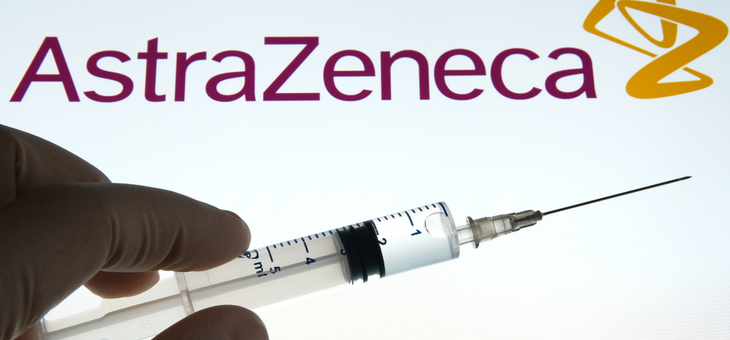There are growing concerns that the vaccine expected to be given to the majority of Australians when the rollout starts – the Oxford/AstraZeneca vaccine – will not be as effective in older people.
Australia has secured 53.8 million doses of the AstraZeneca vaccine, which is still awaiting approval from the Therapeutic Goods Administration (TGA), with 3.8 million doses to be delivered to Australia early this year and 50 million doses to be manufactured in Australia in monthly batches.
In separate reports, German daily newspapers Handelsblatt and Bild said the vaccine had an efficacy of 8 per cent or less than 10 per cent, respectively, in people over 65 years of age.
While AstraZeneca denied that the vaccine was not very effective for those aged over 65, there are reports that the European Medicines Agency (EMA) may decide to authorise it for use only on younger people given the limited data on how it affects older members of the population.
The EMA is expected to authorise the AstraZeneca vaccine at the end of this week, according to a report in The Guardian.
Emer Cooke, the EMA’s executive director, told the European parliament that it was examining the “totality of the data” provided by AstraZeneca across different age groups.
In an interview with la Repubblica on Tuesday, AstraZeneca CEO Pascal Soriot acknowledged there was “a limited amount of data” on the effects of the vaccine in older people, but insisted that the information had showed “very strong antibody production against the virus in the elderly, similar to what we see in younger people”.
He said he understood if some countries “out of caution, will use our vaccine for the younger group”.
But he added: “Honestly, it is fine. There’s not enough vaccines for everybody. So, if they want to use another vaccine for older people and our vaccine for younger people, what’s the problem? It’s not a problem.”
The doubts surrounding the efficacy of the AstraZeneca vaccine on older Australians could not have come at a worse time for the government, which launched its public information campaign to encourage Australians to get a COVID-19 vaccination on Wednesday.
The $23.9 million campaign will keep Australians fully informed and up to date about the safety and effectiveness of COVID-19 vaccines as they become available, including when, how and where to get the jab.
The campaign follows the announcement from the TGA that it had approved the Pfizer vaccine for use in Australia.
The first priority groups in Australia will start receiving the Pfizer vaccine in February with two shots required, administered at least 21 days apart.
Priority groups such as aged care and disability care residents and workers, frontline healthcare workers, and quarantine and border workers will be the first to receive the COVID vaccine.
The Pfizer vaccine will be delivered at up to 50 hospital sites across Australia, and in residential aged care and disability care facilities.
Health minister Greg Hunt said he had no doubts that Australians would be keen for a vaccine when it was available for their use.
“Australia is a vaccination nation,” Mr Hunt said. “We have one of the highest vaccination rates in the world. Australians understand that vaccines work. They save lives. They improve lives. They protect lives.
“I am confident, given Australia’s high vaccination coverage rates that Australians will take up a safe and effective COVID-19 vaccine in equally high numbers.”
Are you concerned that Australians will be given the least effective COVID-19 vaccine? Are you hopeful that you will be approved for the Pfizer vaccine instead of the AstraZeneca vaccine?
If you enjoy our content, don’t keep it to yourself. Share our free eNews with your friends and encourage them to sign up.
Related articles:
https://www.yourlifechoices.com.au/health/covid19/intensive-care-during-covid-like-a-delirium-factory-study-finds
https://www.yourlifechoices.com.au/travel/will-you-need-a-vaccination-to-visit-australian-venues
https://www.yourlifechoices.com.au/travel/overseas-travel-remains-unlikely-this-year

